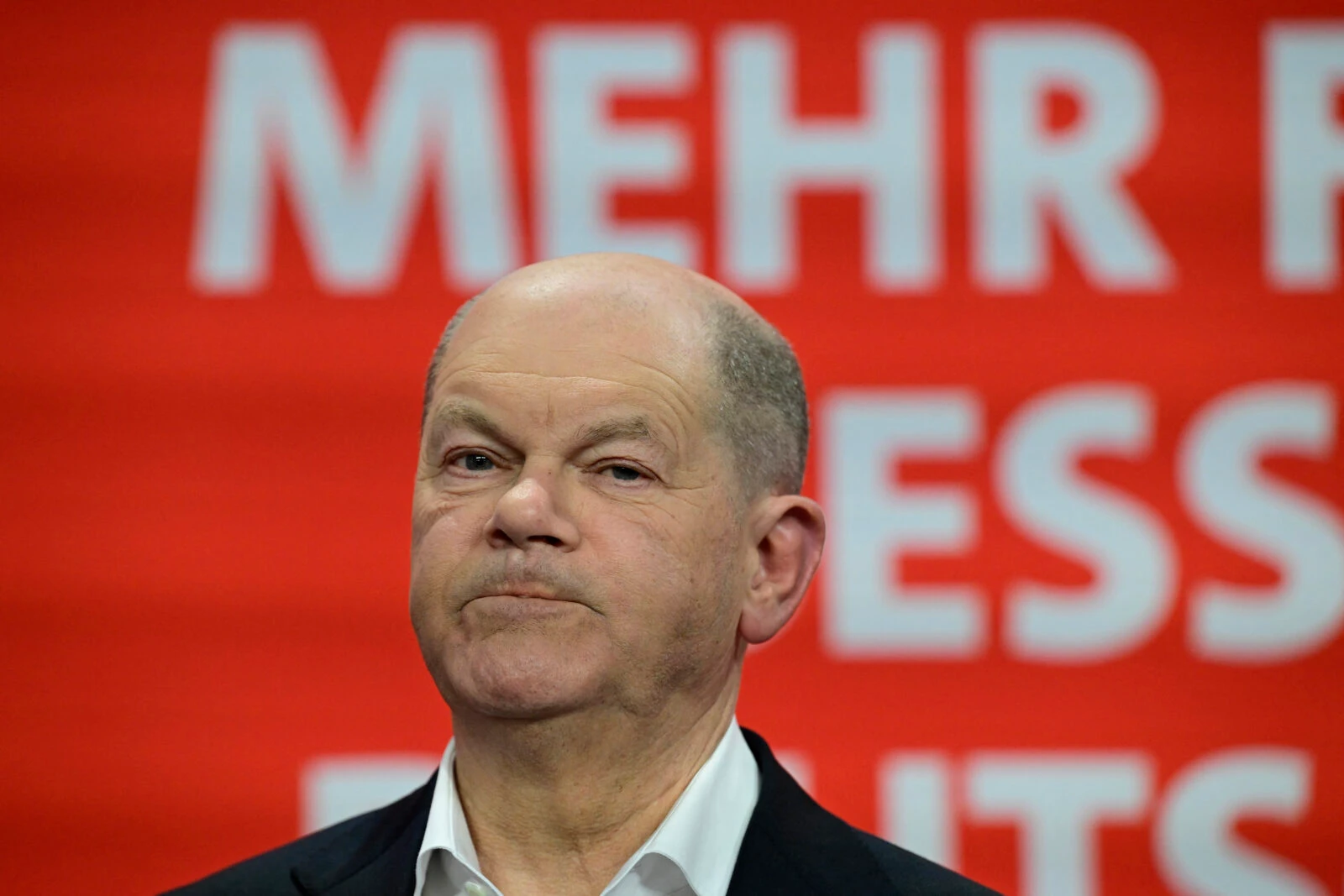Conservative leader Merz wins Germany’s pivotal election as far-right AfD surges : Exit polls
 Leader of Germany's Christian Democratic Union (CDU) Friedrich Merz (C-L) and Bavaria's State Premier and Leader of the conservative Christian Social Union (CSU) Markus Soeder (R) react in front of cheering supporters during the final campaign event of Germany's Christian Democratic Union party on the eve of general elections in Munich, Germany, Feb. 22, 2025. (AFP Photo)
Leader of Germany's Christian Democratic Union (CDU) Friedrich Merz (C-L) and Bavaria's State Premier and Leader of the conservative Christian Social Union (CSU) Markus Soeder (R) react in front of cheering supporters during the final campaign event of Germany's Christian Democratic Union party on the eve of general elections in Munich, Germany, Feb. 22, 2025. (AFP Photo)
Germany’s conservative CDU/CSU alliance, led by Friedrich Merz, emerged as the front-runner in Sunday’s elections, securing between 28.5% and 29% of the vote, up from 24% in the previous federal election in 2021, according to first TV exit polls. However, despite the lead, the party fell short of the parliamentary majority needed to govern alone.
The far-right Alternative for Germany (AfD) followed in second place with record 19.5% to 20%, nearly doubling its share from the 2021 election.
Meanwhile, Merz’s main rival Chancellor Olaf Scholz’s Social Democratic Party (SPD) suffered a historic low, with just 16% of the vote, as per ARD’s exit poll. Later on, he conceded election defeat, sayin, “I am responsible for this election result.”
If confirmed by the final count, the AfD is expected to have nearly doubled its vote share to at least 19.5%, fueled by growing concerns over immigration and security after a series of deadly attacks attributed to asylum seekers.

AfD’s ‘historic’ result
For now, the AfD, which enjoys vocal support from key allies of former U.S. President Donald Trump, is set to remain in opposition. All other parties have vowed to keep it out of power and maintain a “firewall” of non-cooperation.
Despite this, AfD leader Alice Weidel celebrated the “historic” result, reiterating that her party was ready to govern alongside the CDU/CSU.
Before Merz, 69, can take over from the outgoing Scholz, he will need to form a new coalition government in Europe’s largest economy. This process, often lengthy, is expected to be completed by Easter.
This leaves Berlin facing potential paralysis for weeks, especially as the Trump administration continues to instigate significant global changes, particularly concerning the ongoing war in Ukraine, which has now lasted for three years.

New government ‘as quickly as possible’
“The world out there is not waiting for us, and it is not waiting for lengthy coalition talks and negotiations,” Merz said after claiming victory. He called for the formation of a new government “as quickly as possible.”
To secure a majority, Merz is expected to reach out first to the SPD, although not to Scholz, who has led the party to a historically poor result. Merz may also seek support from the Greens, who garnered at least 12% in exit polls, though the CSU, the CDU’s Bavarian sister party, has so far rejected this option.
Details to follow…



